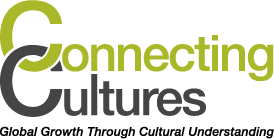How do we conduct our cultural training?
ConnectingCultures can provide cultural training as workshops, lectures, one-to-one training, courses and business advice and consulting. Whatever you choose, we always adapt our training to your specific needs. Do you want to be inspired by a motivational lecture? Or do you want to invest in developing your employees’ cultural competencies through a full-day workshop?
Do you want to develop a highly efficient multicultural team through a course of workshops? Do you want one-to-one training of your leaders, where we put together intercultural management strategies for the future? Do you need advice and consulting in connection with developing business globally, or other strategic considerations, where culture plays a role? Below you can read more specifically on the different forms.
Workshops
Half or full-day workshops that effectively train your cultural skills, whether you want to sharpen your global mindset, increase knowledge about the business culture of a particular country, or a particular region or create trust and better communication in virtual teams.
Lectures/keynote
Inspiring and interactive presentations that give insight into business culture in a specific country, region or any topics you want addressed (e.g. global leadership, motivation across cultures, virtual teams, the importance of body language across cultures, efficient virtual teams, and so on)
One-to-one training
One-to-one training that specifically trains the skills of individuals. This training is frequently conducted for leaders of global teams or multi-cultural teams, as well as managers or employees (+ family) to be relocated or repatriated.
Courses
An in-depth course of workshops where we work to develop the skills of your managers or employees and implement new behavior over a period of time. The course can also be directed towards teams and the development of a new common culture within the team.
Business advisory
Advice and consulting available on the mergers of companies located in different countries, opening branches in new countries or in connection with strategic considerations relating to payroll systems, motivation, and so on.
Virtual training
We also offer our workshops, lectures and courses virtually on Skype for Business, Web-Ex, Surface Hub or Zoom and we use a variety of different digital platforms to make the trainings interactive and inclusive. The trainings are aimed at individuals or groups abroad or across several countries.
How a typical cultural training is conducted
Through dialogue, we put together a program that matches your needs and wishes. Before the training, we will send you a questionnaire to clarify your challenges and wishes and which also gives us an insight into how you work internationally. We typically conduct the training at your company premises, or somewhere else that suits you. Call for a free consultation on what type of training best suits your needs, and how we can put together a program that puts the efficiency of your global interactions in focus: +45 27346999
Personality tests, culture and team tools that support cultural training
Our workshops and cultural training may be combined with profile tools, personality test or tests focusing on cultural preferences. They can be integrated into most of our courses and workshops, but are particularly good for our country-specific workshops and global mindset workshops, as well as all our workshops focusing on multicultural or virtual teams. They are also effective in our one-to-one coaching sessions, where they can help focus on what the manager of a multicultural team should be aware of.
The tools can be used to zoom in on the team’s composition and preferences of the team or to assess each employee’s strengths and challenges in the intercultural context.
By integrating profiling tools, we ensure that you both get knowledge about the general trends in the country or countries you work with, while you also become wiser about the team’s composition with regards to cultural and personal preferences.
Our trainers are certified in the following tools:
Cultural Intelligence Center’s CQ® Assessment
Globesmart®
An online profile test that indicates your personal working preferences in relation to the 5 cultural dimensions that measure the hierarchy, individualism, risk-taking, communication and relationship. You can compare your personal profile with the general trends in 92 countries, your team as a whole and each team member and then make eventual strategies. See more here: (PDF)
Globesmart Teaming Assesment®
An online test, in addition to accommodating Globesmart’s tools, further zooms in to the team and indicates the team’s strengths and weaknesses and which areas the team can benefit from focusing on improving. See more here: (PDF)
Myers-Briggs Type Indikator® (MBTI®) / Jungiansk Type Indeks (JTI)
Personality tests which are intended to raise awareness of one’s own behaviour and others’. Theymmeasure on the same four dimensions, extrovert or introvert; sensory based or intuitive; thought based or feeling based; judgmental or perceptive. We can combine cultural dimensions with the more personality-oriented dimensions and thus open up to understanding each other. We especially use the tool for one-to-one coaching sessions and team development.
Belbin® Test
An online test that measures the individual’s contribution to the team and the team’s overall resource profile. We use the test in workshops for multicultural teams where it can add a more personal angle to the cultural differences the team has.
LEGO® SERIOUS PLAY®
A fun and innovative process tool that can be integrated into a workshop for multicultural teams. We use it most often to develop a new common team culture and to get focus on how we can get the team’s cultural (and personal) differences on board in a positive way in the team.

